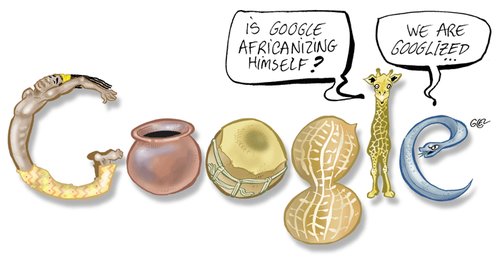The internet giant is rapidly scaling up its
presence and believes it can play a central role in getting Africans online. Combine low levels of internet
penetration, meagre financial inclusion and an underdeveloped private sector,
and you might wonder why Google - which earns most of its cash by selling
advertising on its search engine - has Africa firmly in its sights.
The American technology
giant is the first of its class to get serious about the continent's
fast-changing online landscape. New undersea data cables and skyrocketing
mobile phone subscriptions - now in excess of 500m - are reshaping Africa's
connectivity, and internet users have quadrupled in the five years since Google
established a presence there.
Google does not disclose how much it
invests or earns in Africa, but it is playing a waiting game. "It's
difficult to be making any big money in Africa, and we are not yet really
focusing on advertising," Joseph Mucheru,
Google sub-Saharan Africa ambassador, and country manager,
Kenya, says. "But we have a good sized population, a young population,
there's a lot of entrepreneurship, so it's just a matter of time."
Mr Mucheru, who was the
first African to be hired by Google in 2007, is now part of a fast-expanding
team whose priority is getting Africans online and using Google services. The
company's play has been transformative. It has launched dozens of projects
dedicated to local requirements; most recently a Gmail SMS service, which lets
users send and receive emails via their mobile phones regardless of whether
they are connected to the web.
Africans can now access
the internet's most-used search engine in more than 30 local languages,
including Amharic, Swahili and Zulu, opening search up to people who do not
speak former colonial languages. Google Maps is
helping to chart previously unmapped territory, giving locals access to realms
of new information. The company is also working with governments to bring their
data and services online.
Business is benefiting too. African
media outlets have been able to build up huge footprints online. Locals tune in
by the millions to watch news channels such as Kenya's Citizen on YouTube. To
populate the internet with content generated on the continent, Google has set
up a new 'Getting Businesses Online' initiative, which helps small companies
build their own sites.
"When you search
and you are looking for products we want locally relevant products for the
users, and at the moment we don't have many results coming from local
businesses, so we need more businesses creating their own content," Mr
Mucheru explains. In the seven months since the initiative was launched in Kenya,
more than 20,000 companies have developed websites with Google's help.
Between South Africa and Nigeria, another 42,000 business have been brought
online.
Growing demand for services such as
YouTube has allowed operators to cut the cost of their data plans; Wazi WiFi in Kenya is piloting high-speed, low-cost
wireless internet, that tries to circumvent otherwise high bandwidth costs. All
of that means more reasons for Africans to go, and stay, online.
But it is not all smooth running. In
January, Google had to issue an apology after a Kenyan listings firm Mocality
accused the search colossus of accessing its database of local companies to
boost its own business. Google issued a statement, saying that it was
"mortified" to learn that workers had tried to poach customers for
the getting businesses online programme.
And as the European Commission ends a
two year investigation into claims that the company has abused its online
search success by prioritising its own services, concerns have been voiced
about the creation of monopolies in Africa.
Rival groups such as
Microsoft and Yahoo have established some presence on the continent, but Google
seems to have won the race for search space. "Google have been quicker off
the mark that most. Yahoo got there first but didn't really take full advantage
of that position. Google's rivals haven't really embraced Africa in the same
way," says Nick Jotischky, principal analyst with Informa Telecoms &
Media.
"But it's a good thing that
Google is showing that interest - certainly for the consumer. It drives down
device costs, the costs of bandwidth, the wholesale costs of transferring data.
It's good news for the consumer."
Google may have planted its flag
first, but it welcomes the competition. "What we
are trying to do is get more internet users and even Facebook is a friend in
doing that," Mr Mucheru
says. "Google is a platform for people to build on. We are offering the
fuel that grows the internet."

